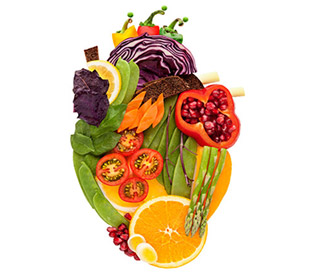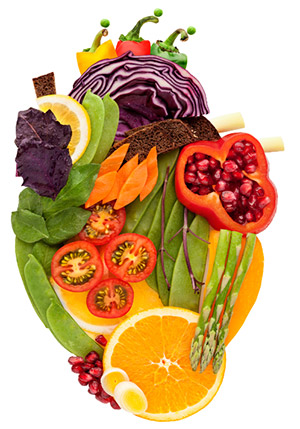What's the Deal With Digestive Enzymes? Let's Find Out

Many of my clients ask me the question, "My doctor told me I need to take digestive enzymes to help me digest my food. What do you think? Does that mean something is wrong with me?"
Instead of giving you a "yes" or "no" answer, let me spend a couple of minutes talking about what enzymes are and then talk about if you need them.
An enzyme is a tiny chemical that performs a specific job. It is not a micro-organism as it does not grow or reproduce. Instead, it acts as a catalyst for other substances in order for them to grow, reproduce, function, or metabolize. Some enzymes do specific things at specific temperatures, some do these things with or without oxygen, and some with or without water. There are thousands of different enzyme types that have been discovered, and many more reactions have been identified that enzymes are responsible for.
Enzymes are critical to life. In fact, they are needed for every chemical reaction that occurs in our body; eating, breathing, moving, thinking... you name it and it doesn't happen without enzymes. No vitamin, mineral, or hormone can do any of its work without enzymes. The cells, tissues, and organs in our body all function because of the presence of metabolic enzymes. Special types of enzymes also convert proteins, fats, and carbohydrates into nutrients that the body can then use. It does not matter what foods you feed your body - without enzymes, they will be useless.
There are 3 types of enzymes:
- Metabolic: These are the guys run the general processes of our bodies. They also repair damage and decay, and help us heal from disease.
- Digestive: These are produced by our body and help us break down the food we eat so that we can digest the nutrients in those foods
- Food: These are present in raw and lightly cooked whole foods, as well as raw or high quality supplements. They help our bodies efficiently break down the food they are contained in. Nature has supplied fresh, raw foods with all the necessary food enzymes to help us properly digest these foods, and convert important phytochemicals in these foods into their active form inside our body.
|
When we eat enzyme-poor foods (foods that have been processed, cooked at high temperatures, microwaved, or irradiated), we force our pancreas to produce the food enzymes necessary to help us digest those foods. But the pancreas is primarily focused on producing enzymes that assist in normal metabolism and internal housekeeping. Producing food enzymes for digestion should be a minimal part of its job description. But when we eat the standard western diet of processed food devoid of food enzymes, the pancreas now has to divert much more of its energy towards producing food enzymes. Not only that, but for those people who eat 4-5 meals throughout the day, or who graze and snack continually, the digestive system is in continual overdrive and the pancreas is forced to continually produce food enzymes.
Over time and without realizing it, eating foods devoid of food enzymes contribute to the depletion of the organs and systems of the body, building a foundation ripe for chronic disease. Clinical research has shown over and over again that poor nutrition and enzyme depletion significantly affects the weight of important glands such as the pituitary, testicles, ovaries, pancreas, adrenals, and thyroid, as well as other organs.
Enzyme depletion enlarges the pancreas. When the pancreas is forced to be the primary enzyme-producer for foods, it enlarges (just like any muscle does when we exercise it), except this is not the type of exercise the pancreas needs. Check out the Body Healer protocol to learn more about these studies.
Traditional cultures intuitively understood that a diet filled with large quantities of raw & fermented foods (vs. predominantly cooked & pasteurized foods) were the key to vitality & freedom from disease. Read more about the healthy diets of traditional cultures.
Enzymes Can & Do Wear Out
Every person is born with an enzyme potential, and this potential can be either used wisely or it can be wasted quickly. When our metabolic enzyme potential is exhausted, this triggers the end of our lifespan. It is very important to get fresh enzymes from our diet, because our pancreas and other enzyme-producing organs wear down when they are overworked. More importantly, these organs need to focus on producing enzymes that assist in normal metabolism, the rejuvenation of cells, elimination of toxins, our overall growth, and strengthening our immune system. Production of enzymes for digestion should be minimal.
Enzyme depletion and aging go hand in hand, and as we age, our body produces smaller quantities of enzymes. Studies have shown that the presence of enzymes in the saliva of young adults is approximately 30 times stronger than in persons over 69 years of age. Preserving our enzyme supply is important business! And how does the enzyme supply of the body become depleted? By forcing it to produce food enzymes unnecessarily.
REMEMBER!
If we do not include plenty of fresh, whole foods in their raw or lightly cooked form in our diet, the food enzymes are missing that help us digest the nutrients in those foods. The organs of our body are then forced to create these missing enzymes.
Over time, these overworked organs become less able to keep up with the job of daily internal housecleaning, critical for our health and well-being. The result? Premature aging, digestive issues, and a compromised immune system. Spending more enzymes than we conserve is an enzyme-depleting way to live!
The more we eat enzyme-depleted foods, the sooner we age. No matter what you do in life, you cannot change the fact that you will always be using up enzymes, simply because you are alive and breathing. But you can control the rate at which you use them up by making the right food and lifestyle choices, and by not doing things that deplete and destroy them.
Providing enzyme reinforcements from the food we eat allows the body to dedicate more time to focus on producing metabolic enzymes, which help to regenerate our bodies.
 How we deplete or destroy enzymes?
How we deplete or destroy enzymes?
- By eating processed and refined foods.
- By microwaving food.
- By eating irradiated food.
- By cooking foods at high temperatures (most enzymes are heat-sensitive and are destroyed between 118-160°).
- By eating pasteurized dairy (pasteurization destroys the enzymes necessary to digest the milk protein, a key reason why many people cannot digest milk, yet have no issue digesting unpasteurized dairy).
How do we build up and conserve enzymes?
- By including plenty of fresh fruits and vegetables in our diet, raw and lightly cooked.
- By including sprouts.
- By including raw nuts and seeds, soaked 6 hours before eating to neutralize enzyme inhibitors.
Back to the Original Question...
So, do you need digestive enzymes? Now you are armed with a bit more knowledge, the answer should be much clearer.
If you are young, have a healthy diet full of fresh fruits and veggies (at least 50-70%), and a good portion of those food are raw, then the answer is a resounding NO, no matter what any doctor, guru, or website tells you!
If you are young and your diet is less than optimal and does not include plenty of fresh, raw, or lightly cooked foods, then fix your diet instead of running for supplements.
If you are over 50 and fresh, raw foods have not played a big role in your life, then 1) improve your diet, and 2) yes, supplement with digestive enzymes.
In the Body Healer Protocol, I talk about enzymes in much more detail, and also talk about other important digestion topics such as gut microflora and probiotics.
RELATED ARTICLES
- The SAD (S)tanderd (A)merican (D)iet
- Is your diet healthy? Take a look
- Why you should nix microwaved food
- How processed & refined foods deplete our health



